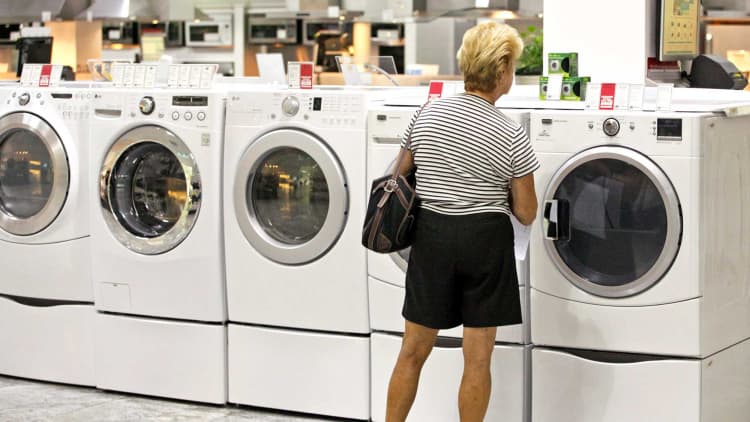
New orders for key U.S.-made capital goods rose more than expected in September, wrapping up a quarter of potentially record growth in business spending and the economy, thanks to fiscal stimulus aimed at softening the blow from the Covid-19 pandemic.
The report from the Commerce Department on Tuesday followed robust data this month on retail sales and the housing market. But government money has dried up and new coronavirus infections are surging across the country, leading economists to anticipate a slowdown in activity in the fourth quarter.
The outcome of next Tuesday's hotly contested presidential election could also weigh on business and consumer sentiment, and pose a risk to the recovery from the worst recession in at least 73 years. More than four in ten supporters of both President Donald Trump and his Democratic challenger and former Vice President, Joe Biden, said they would not accept the result of the November election if their preferred candidate loses, according to a Reuters/Ipsos poll.
Orders for non-defense capital goods excluding aircraft, a closely watched proxy for business spending plans, increased 1.0% last month. Data for August was revised higher to show these so-called core capital goods orders increasing 2.1% instead of 1.9% as previously estimated.
Economists polled by Reuters had forecast core capital goods orders increasing 0.5%.
Core capital goods orders, which have pulled above their pre-pandemic level, were in September boosted by increased demand for primary metals, fabricated metal products and computers and electronic products. But orders for machinery and electrical equipment, appliances and components fell.
U.S. stock index futures were trading higher. The dollar slipped against a basket of currencies. U.S. Treasury prices were higher.
Shipments slowing
Shipments of core capital goods gained 0.3% last month. Core capital goods shipments are used to calculate equipment spending in the government's gross domestic product measurement. They increased 1.5% in August. The three straight months of growth in shipments likely helped to lift overall business investment from a deep hole in the third quarter.
Business investment tumbled at a record 27.2% annualized rate in the second quarter, with spending on equipment collapsing at an all-time pace of 35.9%. Investment in equipment has contracted for five straight quarters.
Growth estimates for the July-September quarter are as high as a 35.2% annualized rate, which would recoup roughly two-thirds of the output lost because of the coronavirus.
The economy contracted at a 31.4% pace in the second quarter, the deepest decline since the government started keeping records in 1947. The government is scheduled to publish its snapshot of third-quarter GDP on Thursday.
Orders for durable goods, items ranging from toasters to aircraft that are meant to last three years or more, jumped 1.9% in September after rising 0.4% in August. Durable goods orders were driven by a 4.1% rebound in orders for transportation equipment, which followed a 0.9% decline in August.
Orders for motor vehicles and parts recovered 1.5% after falling 4.1% in August. But there no orders for civilian aircraft reported for the third straight month in September.
Boeing lost another three orders for its grounded 737 Max jetliner in September, and delivered 11 total aircraft to customers, less than half the number from the same month a year ago, the planemaker reported this month. Boeing has struggled with cancellations as airlines grapple with sharply reduced demand for air travel because of the pandemic.
The grounding of Boeing's best-selling 737 Max jets since March 2019 after two crashes in Indonesia and Ethiopia has also weighed on the company.

